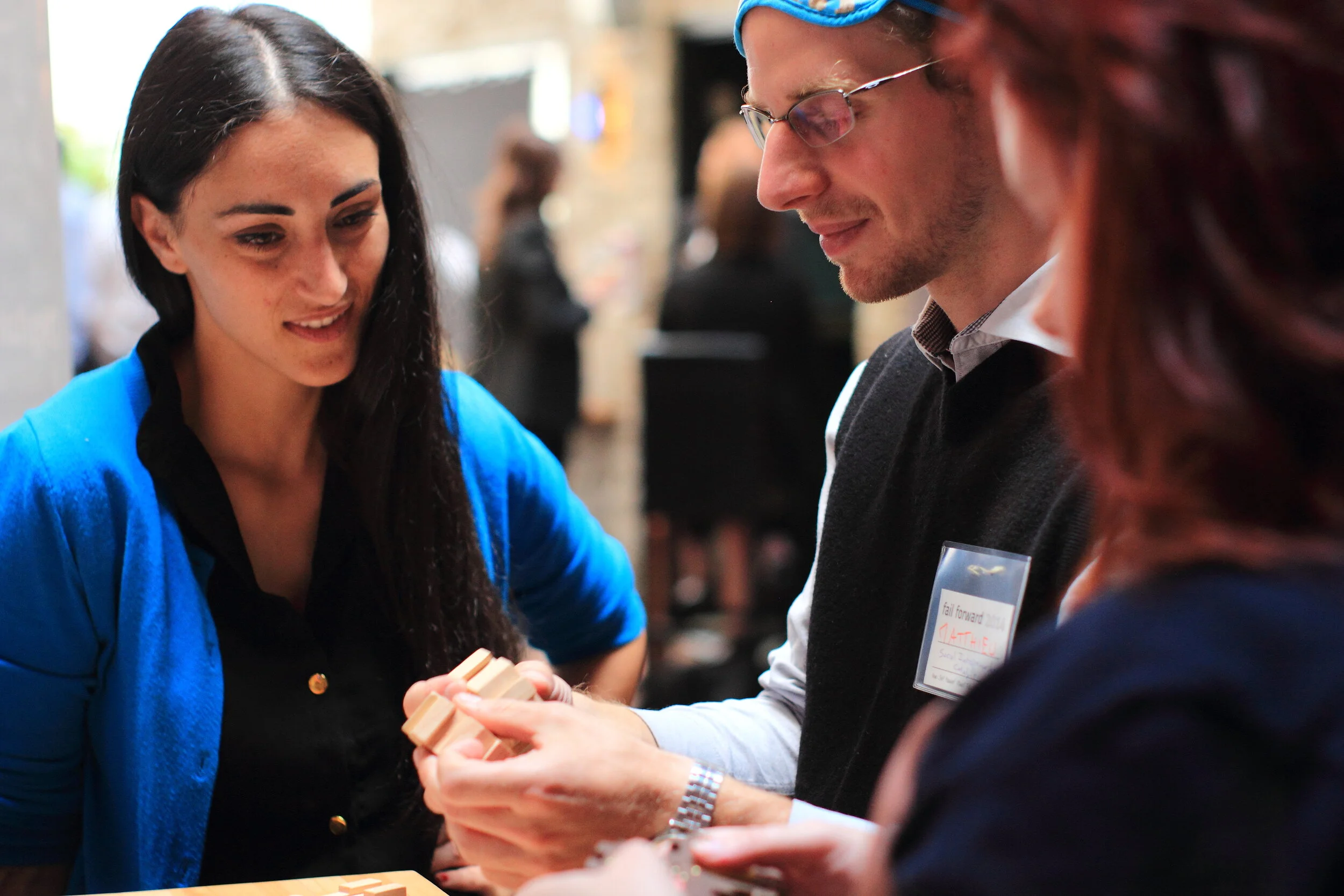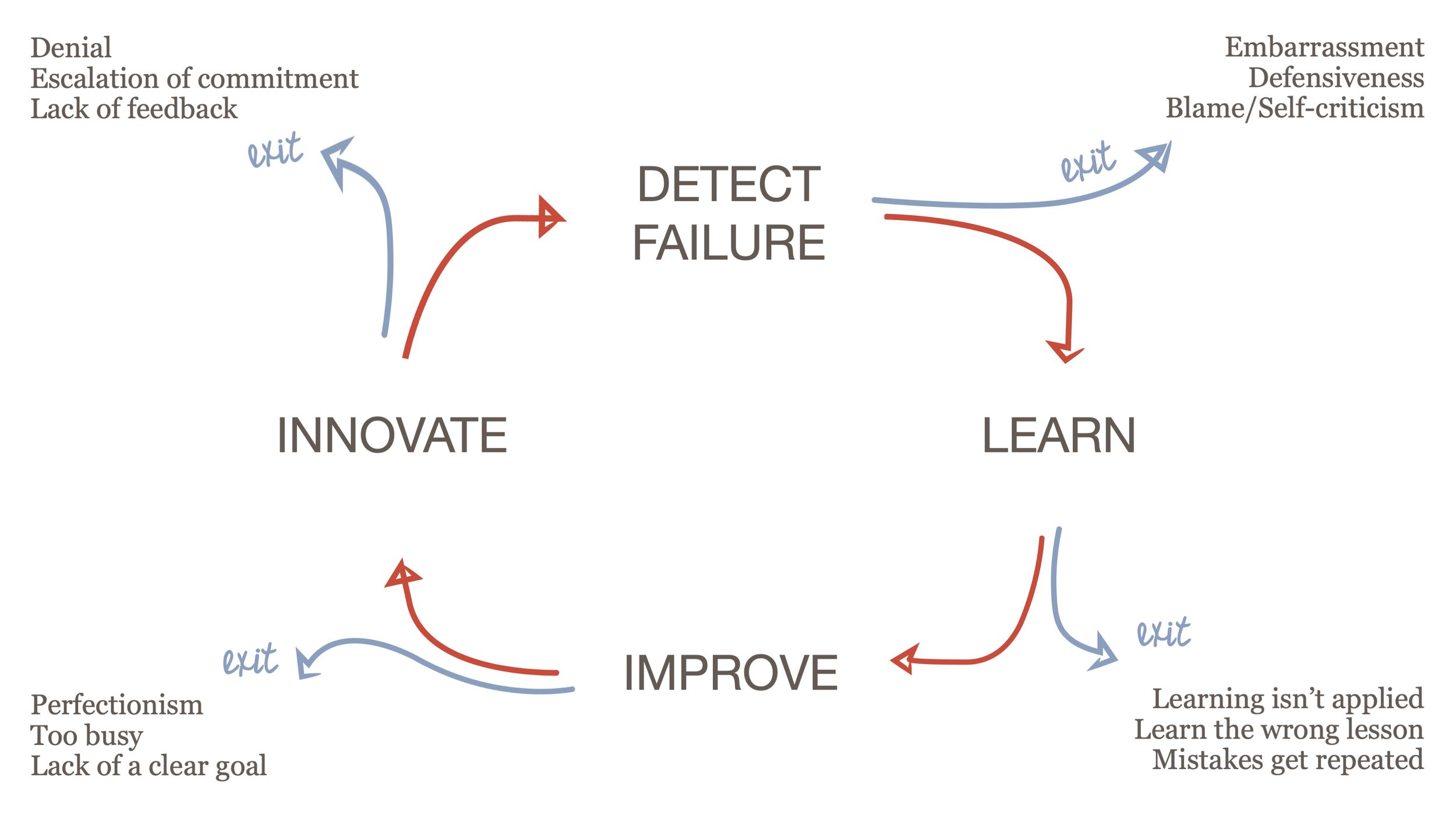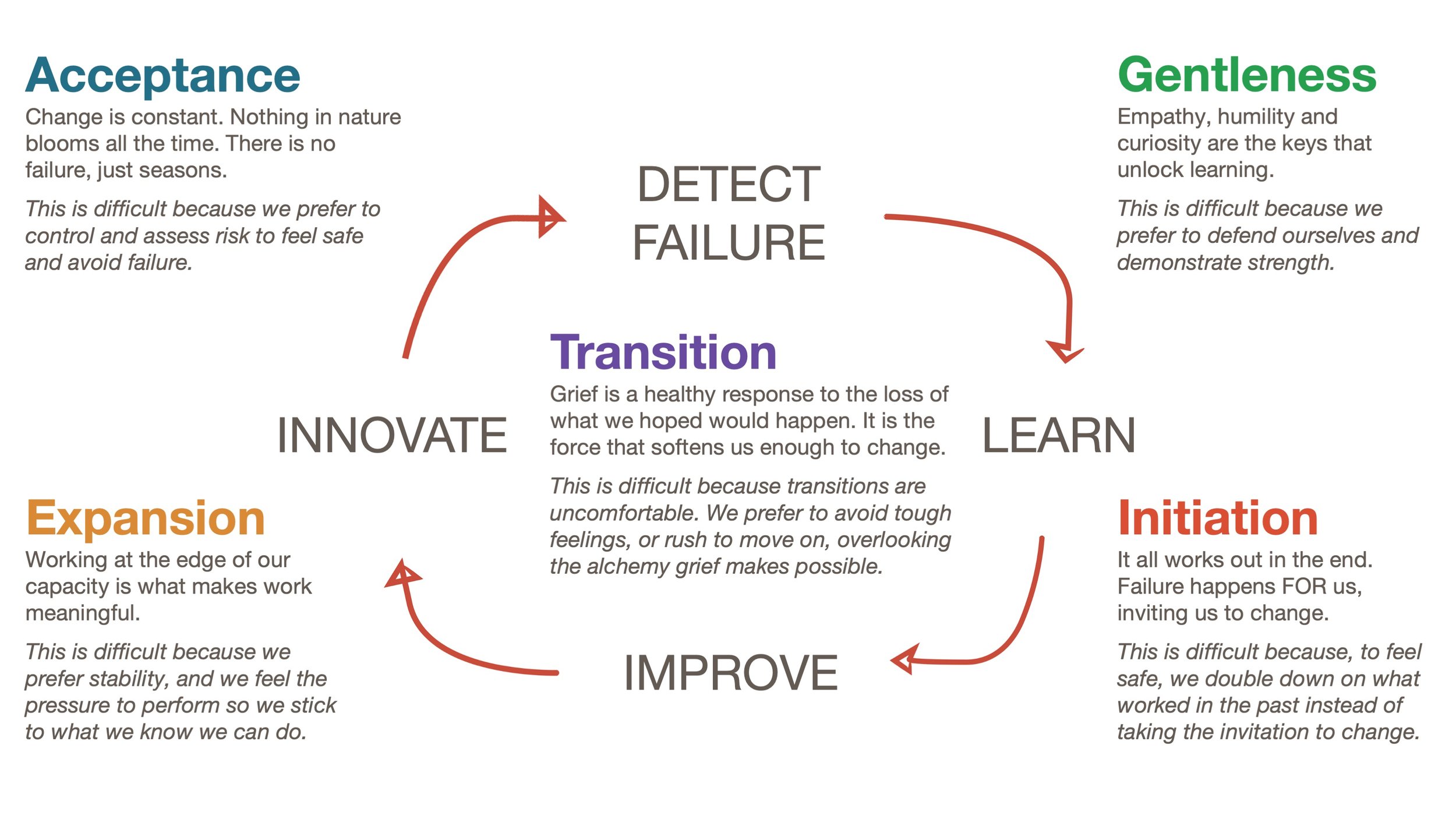Failure is inevitable
In almost everything we do, there are aspects we could have done better.
To ensure those failures - big and small - lead to learning, innovation and better performance, we must fail intelligently.
Intelligent failures are those that result in useful learning, allowing us to move forward more wisely. As we build this healthy relationship with failure, we create room to innovate, knowing any risks we take will only lead to learning and growth.
How do we fail intelligently?
It is always possible to move forward from failure stronger and wiser. To do this, we must:
Detect failures as early as possible and speak up about them;
Respond positively and get curious about what we can learn from the situation;
Make changes to our mindsets, behaviours, and the way we do our work to improve our performance and ensure we don’t repeat the failure; and
Take smart risks and experiment with new ideas in pursuit of innovation.
Unfortunately, most of our instincts, learned behaviours, and organizational norms cause us to exit the loop.
That’s why the skill of Intelligent Failure takes practice.
Intelligent Failure is a learned skill THAT EVERYONE can practicE and strengthen.
the practices
Just as there are four exits off the Intelligent Failure loop, there are four practices that help us stay on:
Acceptance, Gentleness, Initiation, and Expansion.
Plus a fifth element of Transition, the force that allows both grace and growth to emerge through failure.





